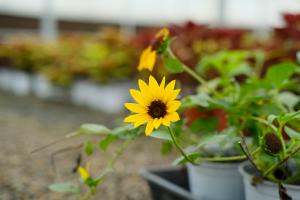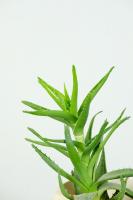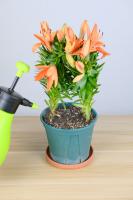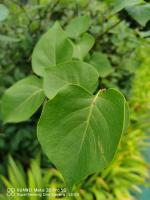Can I Use Grass Mulch with Water as Plant Food?
Grass mulch is a popular choice for many gardeners looking to enrich their soil and promote healthy plant growth. But can grass mulch, when combined with water, be used as a plant food? In this article, we explore the benefits and drawbacks of using grass mulch as a plant food and offer some tips on how to use it effectively in your garden.
The Benefits of Using Grass Mulch as Plant Food
Grass mulch is rich in nutrients that can benefit your plants. As the grass decomposes, it releases valuable minerals, such as nitrogen, phosphorus, and potassium, into the soil. These minerals help plants grow stronger roots, produce more flowers or fruit, and resist pests and diseases.
Using grass mulch as a plant food can also improve the soil's fertility and water-holding capacity, making it easier for plants to absorb nutrients and moisture. Additionally, grass mulch can help suppress weeds, reduce erosion, and protect soil from extreme temperatures, which can lead to healthier plants overall.
The Drawbacks of Using Grass Mulch as Plant Food
While grass mulch can have many benefits, it may not be the best choice for all types of plants. Some plants may be sensitive to high levels of nitrogen or other minerals that can be released by grass mulch. If your plants show signs of burning, such as yellowing or wilting leaves, it may be a sign that the grass mulch is releasing too much nitrogen or other minerals into the soil.
Another drawback of using grass mulch as plant food is that it may attract pests or rodents that can damage your plants. As the grass decomposes, it releases a strong odor that can attract flies and other insects. Additionally, rodents such as mice or rats may be attracted to the mulch as a food source, which can be especially problematic if you are growing edible crops.
How to Use Grass Mulch as Plant Food Effectively
If you decide to use grass mulch as a plant food, there are several things you can do to help ensure its effectiveness and minimize any potential drawbacks. First, make sure to use only clean, untreated grass clippings. Grass that has been treated with herbicides or pesticides may contain harmful chemicals that can harm your plants or the environment.
To use grass mulch as plant food, you can mix it with water and apply it around the base of your plants. Alternatively, you can spread a layer of grass mulch around your plants and allow it to break down naturally over time. Depending on your soil type and the type of plants you are growing, you may need to experiment with different amounts of grass mulch to achieve the desired results.
Finally, it's important to monitor your plants' health and adjust your grass mulching routine as needed. If you notice signs of burning or other problems, reduce the amount of grass mulch you are using and consider using a different type of plant food instead.
Conclusion
Grass mulch can be a valuable source of nutrients for your plants, provided that it is used correctly and in moderation. By following the tips outlined in this article, you can help ensure that your plants receive the benefits of grass mulch without experiencing any negative effects. With a bit of experimentation and care, you may find that grass mulch is the perfect addition to your garden and a great way to promote healthier, more resilient plants.

 how many times do yo...
how many times do yo... how many planted tre...
how many planted tre... how many pine trees ...
how many pine trees ... how many pecan trees...
how many pecan trees... how many plants comp...
how many plants comp... how many plants can ...
how many plants can ... how many plants and ...
how many plants and ... how many pepper plan...
how many pepper plan...
































